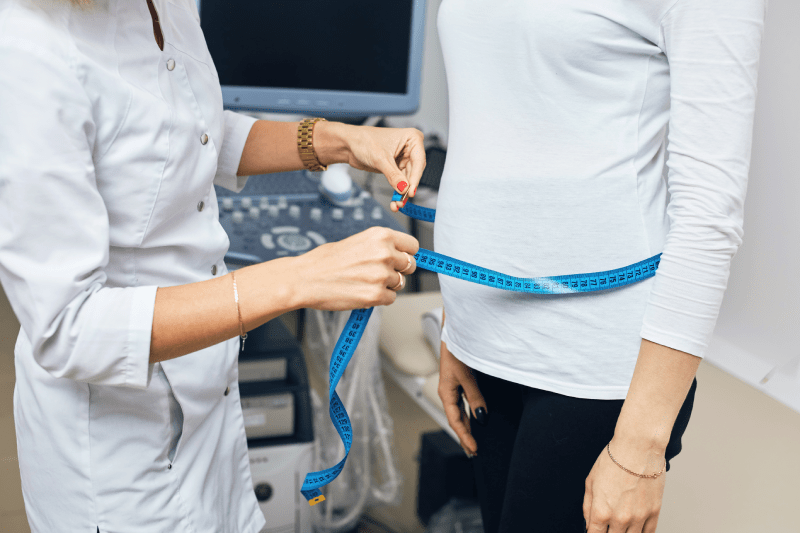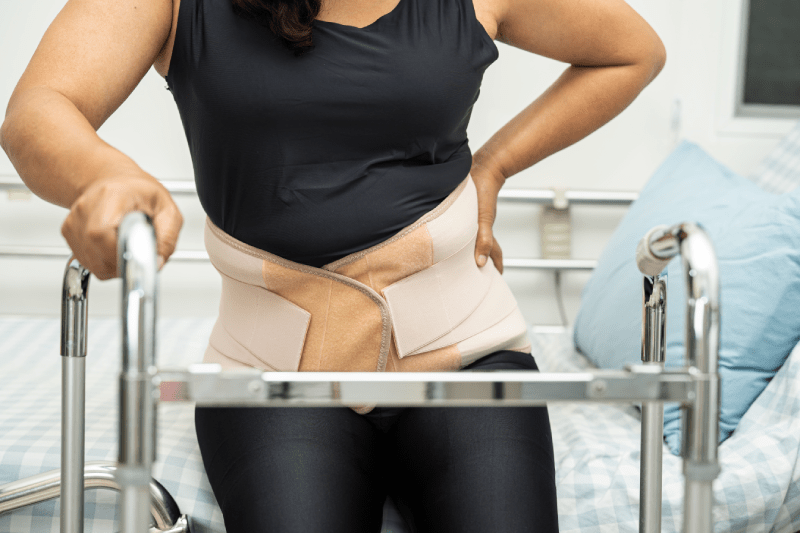Why Should Gastric Sleeve Surgery Be Preferred In Istanbul?
Istanbul is a global hub for bariatric surgery, boasting high-standard and technological hospitals with internationally renowned and experienced surgeons. The most significant factor making Istanbul attractive is that the treatment costs are considerably lower compared to Western countries, without compromising quality.
Furthermore, the city’s hospitals often hold international accreditations like JCI, and the use of the latest technology laparoscopic methods in surgical operations means a top-tier service is provided in terms of both safety and comfort. Patients frequently choose Istanbul because they get the opportunity to combine quality healthcare with a rich cultural travel experience, making their medical journey more holistic and affordable.
How To Choose The Best Gastric Sleeve Surgeon In Istanbul?
Choosing the “best” surgeon is a process based on personal research and trust; it should never solely focus on a name. When making your selection, you must pay attention to the surgeon’s expertise in laparoscopic bariatric surgery, the number of operations performed, and their years of experience. It is essential to get detailed information about their success rates, their experience in managing complications, and their long-term patient follow-up protocols. Additionally, checking whether the surgeon works with a broad team, including dietitians, psychologists, and coordinators, both pre- and post-operation, is vital for a successful outcome that extends beyond the operating table.
What Are The Mandatory Tests Performed Before Surgery?
Before Gastric Sleeve surgery, a comprehensive set of mandatory tests is performed to assess the patient’s suitability for surgery and the risk associated with anesthesia. These tests include a complete blood count, liver and kidney function tests, blood sugar and cholesterol measurements, screening for infectious diseases, and coagulation tests. Furthermore, an endoscopy is performed to check the health of the patient’s stomach and esophagus, along with pulmonology and cardiology evaluations to assess respiratory function. This detailed preparation process ensures that the surgery is performed under the safest possible conditions, mitigating preventable risks.
What Should The Body Mass Index Be For Gastric Sleeve Surgery?
The generally accepted criteria for Gastric Sleeve surgery eligibility rely on the Body Mass Index (BMI). Typically, individuals with a BMI of 40 or higher are considered suitable candidates for the operation. However, patients with a BMI between 35 and 40 who suffer from obesity-related co-morbidities such as Type 2 diabetes, high blood pressure, sleep apnea, or severe joint problems may also be candidates for surgery. Patients with a BMI between 30 and 35 with uncontrolled diabetes can also be evaluated within the scope of metabolic surgery, highlighting the evolving nature of bariatric eligibility.
What Is The Cost Of Gastric Sleeve Surgery In Turkey?
The prices for Gastric Sleeve surgery in Turkey are significantly lower than for similar procedures in Europe and the US; however, prices vary depending on the city where the clinic is located, the technology level and luxury of the hospital, and the comprehensive scope of the surgical package. The lower costs do not imply low surgical quality; rather, they stem from more favorable general operating and living expenses within Turkey. When obtaining price quotes, it is crucial to check not only the surgical fee but also whether additional services such as anesthesia, hospital stay, all necessary tests, medications, and follow-up are included in the package for a transparent financial plan.
What Is Included In The Prices And Which Services Does It Cover?
Gastric Sleeve surgery packages in Turkey are designed to be quite comprehensive to offer international patients a comfortable and seamless experience. The price typically includes the surgical procedure fee, the cost of the anesthesia and surgical team, the duration of the hospital stay (usually 3-4 days), all pre-operative blood and imaging tests, and post-operative prescription medications. In addition, logistical support services such as airport transfers, accommodation in contracted hotels (often 4 or 5-star), and interpretation services providing language support throughout the entire treatment process are frequently an integral part of these packages, ensuring peace of mind for the traveling patient.
What Is The Average Duration Of The Surgery?
Gastric Sleeve surgery (Sleeve Gastrectomy) is a complex operation performed using the laparoscopic method. While the duration of the surgery varies depending on the surgeon’s experience, the patient’s anatomical features, and body weight, it generally takes an average of 1 to 2 hours. Experienced teams aim to keep the surgery time short to minimize the time the patient spends under anesthesia and the associated risks. The post-operative suturing and wound closure are also included within this timeframe, marking the complete end of the technical surgical procedure.
How Many Days Is The Hospital Stay?
The duration of the hospital stay after Gastric Sleeve surgery is quite short, thanks to the minimal invasive (laparoscopic) nature of the operation. Typically, patients are closely monitored in the hospital for 3 to 4 days after the surgery. This period is mandatory for the surgical team to observe for early complications such as leakage or bleeding, to ensure the patient initiates adequate fluid intake, and to manage pain effectively. Before the patient is discharged, they are expected to be able to walk and manage basic fluid intake independently, confirming their readiness for further recovery at their accommodation.

How Are Accommodation And Transfers Provided In Istanbul?
For international patients coming to Istanbul for Gastric Sleeve surgery, accommodation and transfer services are typically arranged comprehensively by health tourism coordinators like Cure Holiday. This service covers picking up and dropping off the patient at the airport, as well as all transportation needs between the hospital and contracted hotels (mostly 4 or 5-star). These arrangements eliminate the stress for the patient of dealing with logistics in a foreign city, allowing them to focus all their energy solely on the recovery process and their medical progress.
How Does The Post-Surgery Nutrition Plan Change?
The post-Gastric Sleeve nutrition plan requires a radical and lifelong change due to the reduction in stomach volume. The first few weeks begin strictly with clear liquids, followed by pureed and soft foods. Solid foods are introduced after approximately one month. Patients must eat very small portions, eat very slowly, and chew every bite thoroughly. High protein intake and strictly avoiding sugary, carbonated drinks are the most important rules for protecting the new stomach and sustaining effective weight loss over the long term, demanding significant discipline from the patient.
Is Gastric Sleeve Surgery A Permanent Solution?
Gastric Sleeve surgery is considered one of the methods with the highest potential for providing permanent and long-term weight loss in the treatment of obesity. The surgery creates a physical restriction by removing about 75-80% of the stomach and reduces the appetite hormone (ghrelin). However, the permanence of the result depends not only on the surgery but also on the patient’s lifelong adherence to a healthy lifestyle, nutritional habits, and regular exercise discipline. The surgery offers a new opportunity for a fresh start, but maintaining the results rests entirely on the patient’s commitment to these vital changes.
What Is The Success Rate And Expected Weight Loss From The Surgery?
The success rate of Gastric Sleeve surgery is measured by the permanent loss of 60% to 70% of the patient’s excess weight. The majority of this weight loss usually occurs within the first 12 to 18 months following the operation. During this period, the remission rates for obesity-related diseases (diabetes, hypertension) are also quite high. Success begins with the quality of the surgical technique but is fundamentally dependent on how strictly the patient adheres to the post-operative nutrition program and vitamin supplementation regimen, making patient compliance the ultimate determinant of outcome.
What Are The Post-Surgery Lifestyle Changes?
Gastric Sleeve surgery brings about not only physical but also social and psychological lifestyle changes. Patients must learn to manage their portion sizes when eating out, limit alcohol consumption, and adopt the habit of drinking plenty of water. Most importantly, it is crucial to lead an active life and incorporate regular exercise into their routine. These changes ensure the patient not only loses weight but also learns to live in harmony with their new, healthy identity, maintaining their health and well-being in the long run.
What Are The Potential Risks And Complications Of Gastric Sleeve Surgery?
As with any surgical procedure, Gastric Sleeve surgery carries some potential risks and complications. Early-term risks include leakage from the staple line, bleeding, and infection. Long-term risks may include vitamin deficiencies due to inadequate nutrient absorption, reflux (Gastroesophageal Reflux Disease), or rarely, stricture formation. Experienced surgical teams and high-standard hospitals implement the most up-to-date techniques and meticulous protocols to minimize these risks, but patient compliance with post-operative instructions is also a mandatory requirement for safety.
What Is Its Effect On Diabetes And Hypertension?
Gastric Sleeve surgery provides a dramatic improvement in chronic diseases related to obesity, such as Type 2 diabetes and hypertension. Immediately following the surgery, insulin resistance is rapidly broken down, not only due to weight loss but also hormonal changes (decreased Ghrelin, increased GLP-1). This often allows many patients to completely stop their diabetes medications or significantly reduce their dosage. Similarly, a noticeable relief is seen in hypertension treatment as blood pressure decreases, which significantly enhances the patient’s overall quality of life and reduces the reliance on prescription drugs.
When Can I Return To Work After The Surgery?
The time to return to work after surgery depends on the nature of the job and the patient’s overall recovery speed. Patients working in desk jobs or jobs requiring light physical activity can generally return to work 1 to 2 weeks after the operation. However, those working in jobs that involve heavy lifting, long periods of standing, or intense physical exertion are advised to wait 4 to 6 weeks for their body to heal completely. Obtaining approval from your surgeon regarding when you can start working at full capacity is crucial for safely completing the recovery process without risking complications.

In Which Cases Cannot The Surgery Be Performed?
Although Gastric Sleeve surgery is effective in treating obesity, it may not be suitable for the patient’s health in certain situations. Uncontrolled severe heart or lung diseases, active cancer treatment, chronic alcoholism, or drug addiction can make the surgery too risky. Furthermore, if there are serious psychiatric or cognitive disorders indicating that the patient cannot adhere to the post-operative lifestyle changes, the surgery will not be performed. A comprehensive evaluation by a multidisciplinary team is therefore mandatory before deciding on the surgery to ensure the patient’s safety and long-term success potential.
Is The Pre-Op Diet Mandatory Before Surgery?
Yes, the pre-operative diet (Pre-Op diet) is absolutely mandatory for the success and safety of Gastric Sleeve surgery. The main purpose of this low-calorie, high-protein diet is to shrink the liver and reduce the fat tissue around the abdomen. The shrinking of the liver allows the surgeon to reach the stomach more easily and safely with laparoscopic instruments, which significantly reduces the risk of complications during the surgery. This diet usually lasts 2 to 4 weeks and is a critical step in preparing the patient’s body for the complex operation ahead.
How Is Pain Control Managed After Gastric Sleeve Surgery?
Since Gastric Sleeve surgery is performed using the laparoscopic method, post-operative pain is generally less severe and more manageable compared to open surgery. Patients receive effective painkillers intravenously during the first few days after the operation, which prevents them from feeling significant pain. After discharge, oral painkillers prescribed by the surgeon are used. The most common discomfort is often not from the incision sites but from shoulder pain caused by trapped gas inside the abdomen; this is quickly alleviated by early movement and walking.
When Should I Start Exercising After The Surgery?
Exercise is fundamental to the post-Gastric Sleeve process of weight loss and muscle mass preservation. Patients are generally encouraged to start light walking in and around their bed a few hours after the surgery. For the first 2-3 weeks, only light-paced walking and daily activities should be done. Strenuous exercises that increase intra-abdominal pressure, such as heavy lifting or sit-ups, must be strictly avoided for 4 to 6 weeks. It is important to start the exercise program gradually and with the doctor’s approval to prevent the risk of hernia and ensure proper internal healing.
Are Vitamin And Supplement Use Necessary After Surgery?
Yes, the use of vitamin and mineral supplements after Gastric Sleeve surgery is mandatory for life. Due to the reduction in stomach volume and changes in the path of nutrient absorption, deficiencies in micronutrients, particularly B12, iron, folic acid, and Vitamin D, can rapidly develop. These deficiencies can lead to serious health issues such as anemia, bone loss, and nerve damage. Therefore, the regular and uninterrupted use of supplements determined by the surgical team and dietitian is the most critical requirement for the patient’s long-term health and well-being.
Is Hair Loss A Side Effect Of The Surgery?
Temporary hair shedding (Telogen Effluvium) is commonly observed following Gastric Sleeve surgery, especially during the period of rapid weight loss in the first 3 to 6 months. This condition is a natural reaction of the body to surgical stress, hormonal changes, and caloric restriction. To minimize this shedding, patients should focus on high-protein nutrition and diligently use the zinc, biotin, and other vitamin supplements recommended by the doctor. The hair loss is usually temporary, and hair regrowth tends to occur as the body stabilizes and nutritional levels are consistently maintained.
How Is Loose Skin Managed?
When significant weight is lost after Gastric Sleeve surgery, the problem of loose skin (sagging) can arise, particularly in the abdomen, arms, and legs. The degree of sagging depends on the amount of weight lost, age, genetic factors, and skin elasticity. This condition can be corrected with Body Contouring Surgeries (post-bariatric surgery), usually 1.5-2 years after the operation, once the weight loss process is fully completed. Increasing muscle tone through high protein intake and regular weight training can help mitigate the sagging to some extent.
How Is Gastric Sleeve Surgery Performed (Laparoscopic Technique)?
Gastric Sleeve surgery is performed using the laparoscopic (keyhole) technique, which is in line with modern surgical standards, by entering the abdominal area through small incisions. The surgeon enters through 4 to 6 small ports opened in the abdomen using specialized instruments and a camera. Approximately 75-80% of the stomach is cut and removed vertically, leaving behind a small, tube-shaped stomach pouch, without bypassing any part of the digestive tract. This minimal invasive method offers advantages such as less pain, a shorter recovery time, and minimal scarring, significantly improving the post-operative experience.
Is There A Risk Of Reflux After Surgery?
The risk of reflux after Gastric Sleeve surgery varies from patient to patient, but some patients may develop new reflux symptoms or experience a worsening of existing reflux complaints. This occurs because the stomach is reduced in size and the internal pressure increases. Surgeons are careful during the operation to create the new shape of the stomach in a way that minimizes the risk of reflux. In cases of severe and uncontrollable reflux, a second operation (such as a revision to Gastric Bypass) may rarely be necessary. Patients must adhere to good eating habits, as this significantly helps in reducing the risk and severity of reflux symptoms.
What Are The Quality Standards Of Hospitals In Turkey?
Turkey boasts high international hospital standards, thanks to significant investments in health tourism. Many hospitals in Istanbul, where bariatric surgery is performed, offer service quality comparable to the best healthcare facilities in North America and Europe. Most hospitals hold the JCI (Joint Commission International) accreditation, which is an international standard for patient safety and quality. This accreditation guarantees the up-to-dateness of the equipment used, stringent hygiene conditions, and strict adherence to clinical protocols, ensuring world-class care.
Is Language Support Provided For International Patients?
Yes, almost all centers offering bariatric surgery services in Istanbul provide comprehensive language support for international patients. This support is provided through interpreters or coordinators who can communicate in the patient’s native language. Interpreters are available throughout the entire process, from the patient’s initial examination to discharge, and even during post-operative consultations. This service ensures the patient can communicate accurately with the doctor, clearly understand all instructions, and manage the treatment process with confidence, breaking down potential language barriers.

Is It Possible To Get Quality At A Low Price In Turkey?
It is absolutely possible to receive high-quality surgical services like Gastric Sleeve surgery in Turkey at a cost far below the prices in Europe and North America. This situation arises due to the lower general cost of living and strong competition within the healthcare sector. A low price does not equate to low-quality equipment or inexperienced surgeons. The key is to verify that the low price is backed by an internationally accredited hospital, an experienced surgical team, and a comprehensive package (tests, follow-up, accommodation) provided by a reliable coordinator.
What Is The Long-Term Follow-Up Process After Surgery?
Long-term follow-up after surgery is the key to the success of Gastric Sleeve surgery and is generally recommended to be maintained for life. The first year typically involves more frequent check-ups at 3, 6, 9, and 12 months. During these follow-ups, weight loss progress is monitored, detailed blood tests are performed to detect potential vitamin/mineral deficiencies, and the nutritional plan is reviewed by a dietitian. Many clinics in Istanbul continue the follow-up even after patients return to their home countries through online consultations or collaboration with local doctors.
What Are The Psychological Effects Of Gastric Sleeve Surgery?
Gastric Sleeve surgery significantly boosts patients’ self-confidence and participation in social life due to the rapid and substantial weight loss achieved. However, the changes in eating habits, social pressures, and the rapid transformation of body image can lead to emotional challenges for some patients. There is also a risk of food addiction shifting to another dependency (shopping, alcohol, etc.). Therefore, seeking support from a psychologist or counselor both before and after the surgery is vital for ensuring mental adaptation and long-term psychological well-being.
Should Psychological Evaluation Be Done Before Surgery?
Pre-operative psychological evaluation is a step that is strongly recommended, and even made mandatory by many clinics, for all patients considering Gastric Sleeve surgery. This evaluation is conducted to assess the patient’s motivation for post-operative nutritional and lifestyle changes, whether they have realistic expectations, and whether they have any psychological conditions such as eating disorders, uncontrolled eating, or depression that could negatively impact surgical success. This assessment is a critical preparation process that supports the patient’s long-term outcome.
When Is It Safe To Get Pregnant After Surgery?
It is absolutely recommended for women planning a pregnancy after Gastric Sleeve surgery to wait at least 12 to 18 months. This waiting period is critically important for the mother to complete the rapid weight loss phase and for her body to fully adapt to the surgery and the new nutritional regimen. Early pregnancy can expose both the mother and the baby to the risk of nutritional deficiencies, especially due to changes in vitamin and mineral absorption. The decision to become pregnant must be made under the strict guidance of the surgeon and dietitian, ensuring optimal health for both.
How Visible Are The Surgery Scars?
Since Gastric Sleeve surgery is performed using the laparoscopic technique, the scars are much smaller and become barely noticeable over time compared to traditional open surgery. There are typically 4 to 6 small incision scars on the abdomen, each usually 0.5 to 1.5 cm long. Surgeons take care to place the incisions in discreet locations to minimize the visibility of these scars. Patients using scar creams and protecting the scars from the sun post-operatively will aid in the further fading of the scars in the long term.
How To Get Emergency Medical Support In Istanbul?
Bariatric surgery centers in Istanbul provide 24/7 emergency support for international patients. In the event of a potential emergency (severe pain, uncontrollable vomiting, high fever), the patient should immediately call the emergency contact number of the surgical team or coordinator. Patients are already under close observation during the initial hospital stay. After discharge, intermediary agencies like Cure Holiday coordinate the patient’s rapid transfer to the contracted hospital or access to emergency medical assistance, ensuring their safety is maintained at the highest level and that the patient is never left alone during a crisis.
Why Should Cure Holiday Be Preferred For Gastric Sleeve Surgery?
Cure Holiday provides a reliable and professional experience on your Gastric Sleeve surgery journey, managing the entire process on your behalf. They bring together experienced surgeons with high-standard, internationally accredited hospitals, ensuring you receive the best quality service with the most favorable price guarantee. The all-inclusive packages they offer (surgery, accommodation, transfers, interpretation, and long-term dietitian follow-up) remove all logistical and language barriers that come with receiving treatment in a foreign country. This allows you to focus solely on your recovery and your new healthy life, secure in the knowledge that every detail is managed.
Where Should I Apply For Detailed Information About Gastric Sleeve Surgery?
To get personalized and detailed information on how Gastric Sleeve surgery is performed at the best prices and highest quality in Istanbul, and what the most accurate surgical plan is for you, you can contact Cure Holiday. Expert consultants will assist you in formulating the best treatment plan suited to your health history and weight loss goals, starting your journey with comprehensive support.



